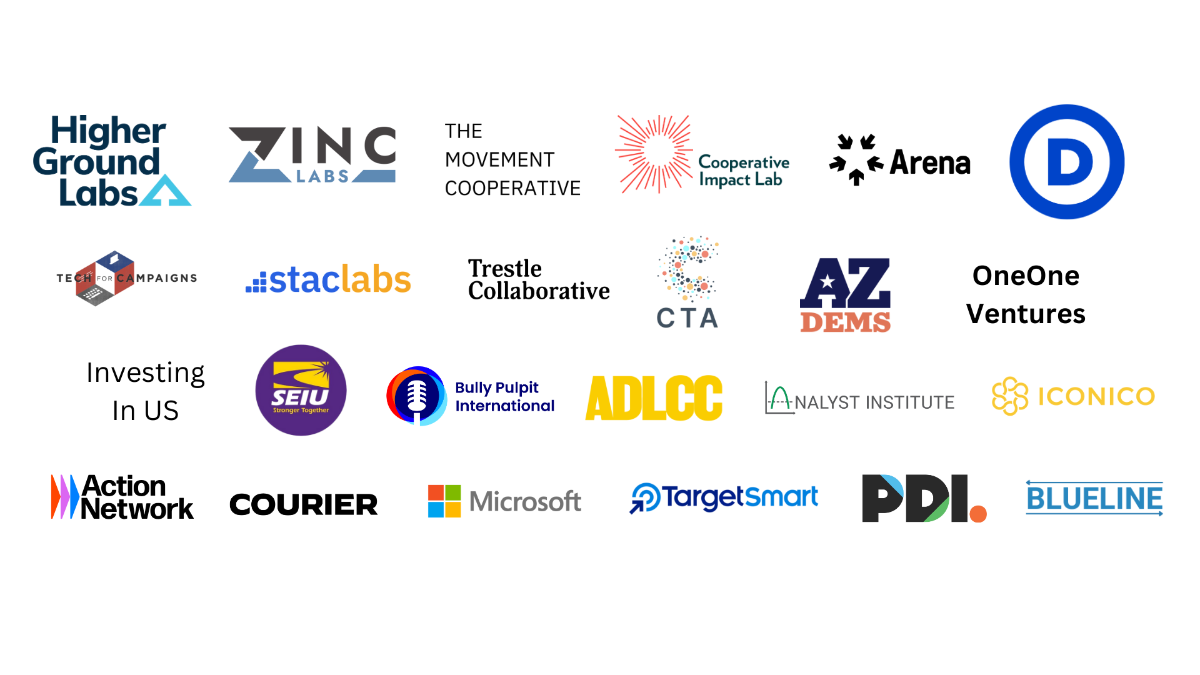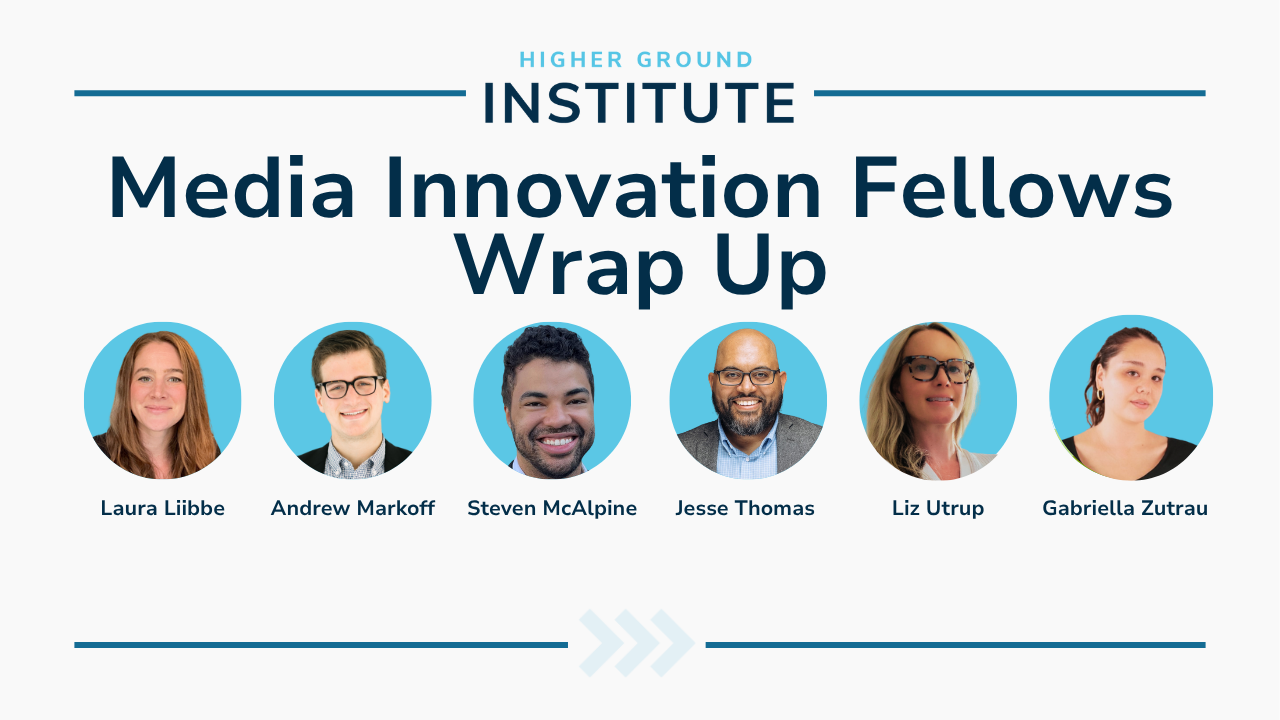The use of technology in campaigns evolves with every election cycle. Over the span of just a few months, campaigns build massive digital operations, rapidly test new strategies, and push the boundaries of what’s possible. But campaigns move fast—often too fast to step back, assess what worked, and carry those lessons forward. By the time the cycle ends, many strategists and technologists have already moved on, and critical institutional knowledge is lost.
That challenge has always existed, but this year, it felt even more urgent. Despite some races where Democrats defied national trends, the broader picture was clear: our movement fell short. While there are many factors behind the 2024 election results, one is undeniable: we must rethink how we use technology to engage, persuade, and mobilize voters in a rapidly changing environment. If we don’t adapt, we risk falling even further behind.
Modeled after the three previous Debriefs in 2018, 2020, and 2022, this year’s Election Tech Debrief convened over 300 digital strategists, technologists, organizers, and senior campaign leaders for three days of deep discussions, panels, lightning talks, and breakout sessions. Held in Phoenix, Arizona, this year’s event created space for frank dialogue about what technology strategy worked, what didn’t, and how we must innovate moving forward.
Three days of discussion is not enough to fully process the challenges ahead. But we know that this is just the beginning—an ongoing conversation about how we iterate, experiment, and rebuild.
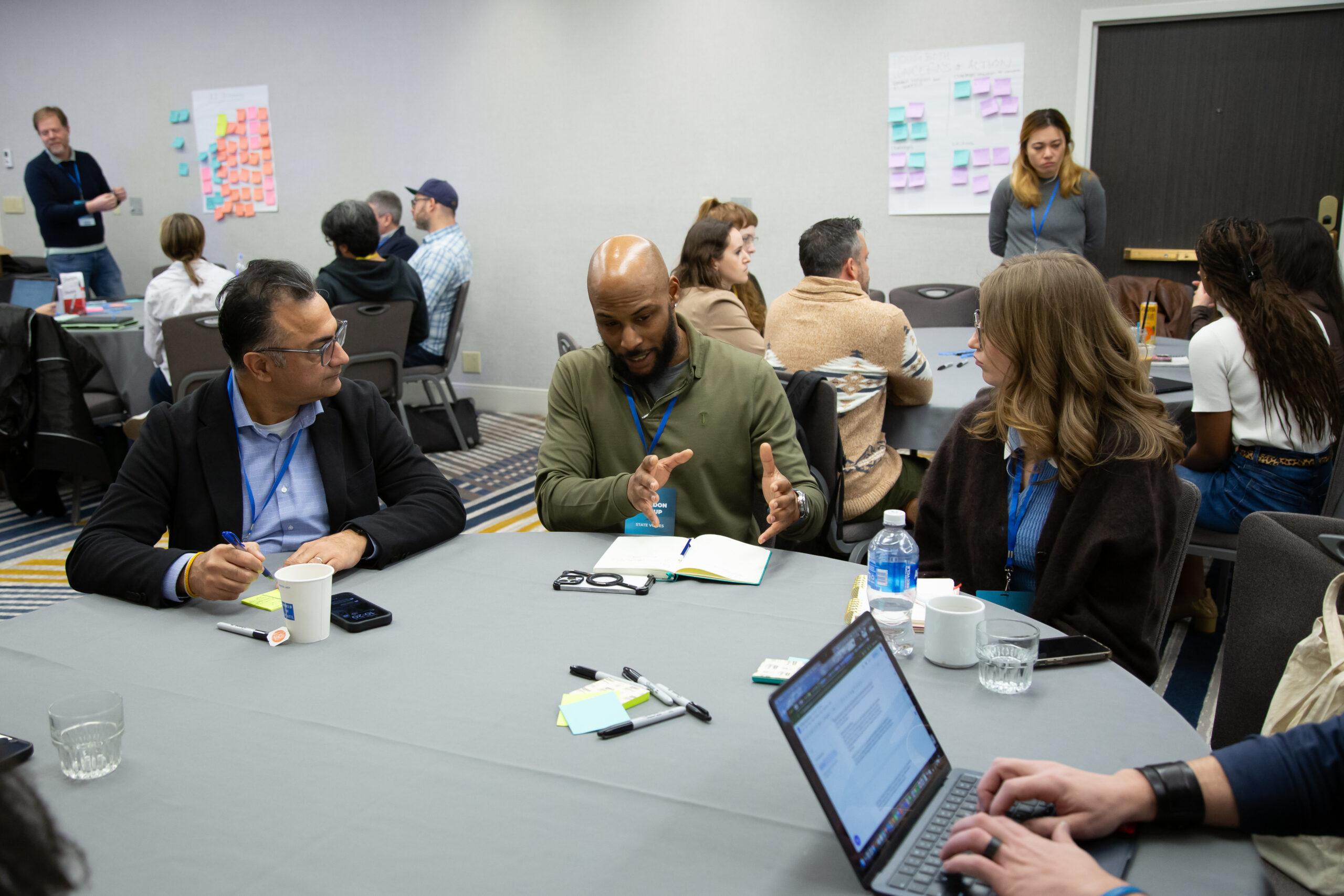 A discussion during a breakout session on organizing and direct voter contact.
A discussion during a breakout session on organizing and direct voter contact.
Key Discussions
At the 2024 Election Tech Debrief, we focused on three essential questions:
- What lessons from this cycle can inform effective tech strategy moving forward?
- What interventions and changes are most needed to close the gap between campaign/movement strategy and technology?
- How do we use tech to help rebuild and power towards victory in 2026 and 2028?
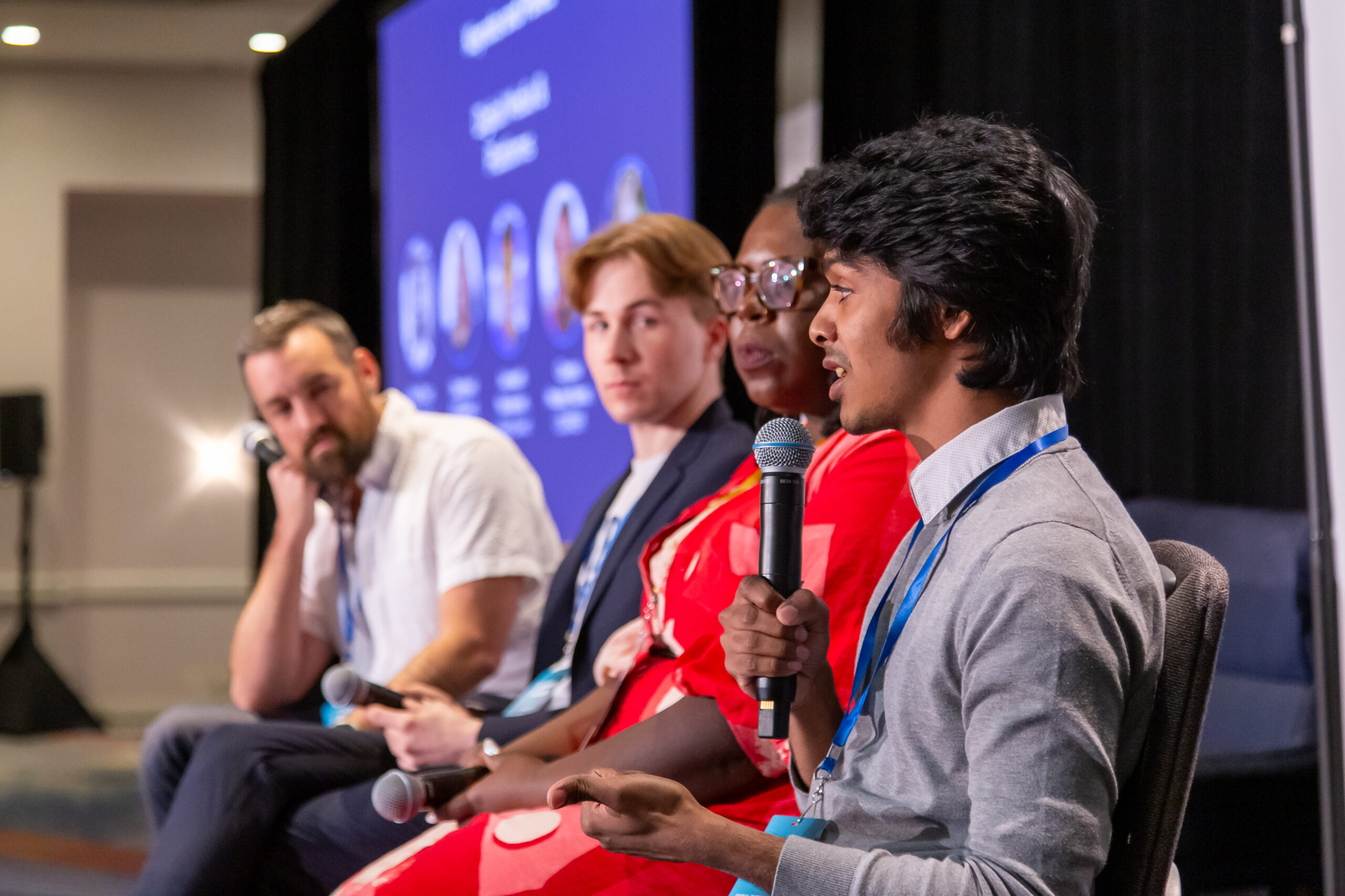 A panel on media & messaging featuring: Ashwath Narayanan (Social Currant), Cayana Mackey-Nance (COURIER & formerly Democratic National Convention), Parker Butler (formerly Harris For President), and Kyle Tharp (Chaotic Era).
A panel on media & messaging featuring: Ashwath Narayanan (Social Currant), Cayana Mackey-Nance (COURIER & formerly Democratic National Convention), Parker Butler (formerly Harris For President), and Kyle Tharp (Chaotic Era).
To address these questions, discussions were structured into four key tracks:
- Data, Tech & Security, which examined data movement strategy, technology resilience, product usability, combatting mis/disinfo, targeting, cyber security, and voter file engineering
- Media & Messaging, which explored the role of tech in earned and paid media, including message testing, ads, research & polling, shifting social platforms, content generation tools, and influencer marketing
- Fundraising & Digital, which assessed the use of online tools and platforms for fundraising, email and text campaigns, and distributed organizing
- Organizing, which focused on the use of tech to power voter contact, volunteer recruitment, and coalition-building.
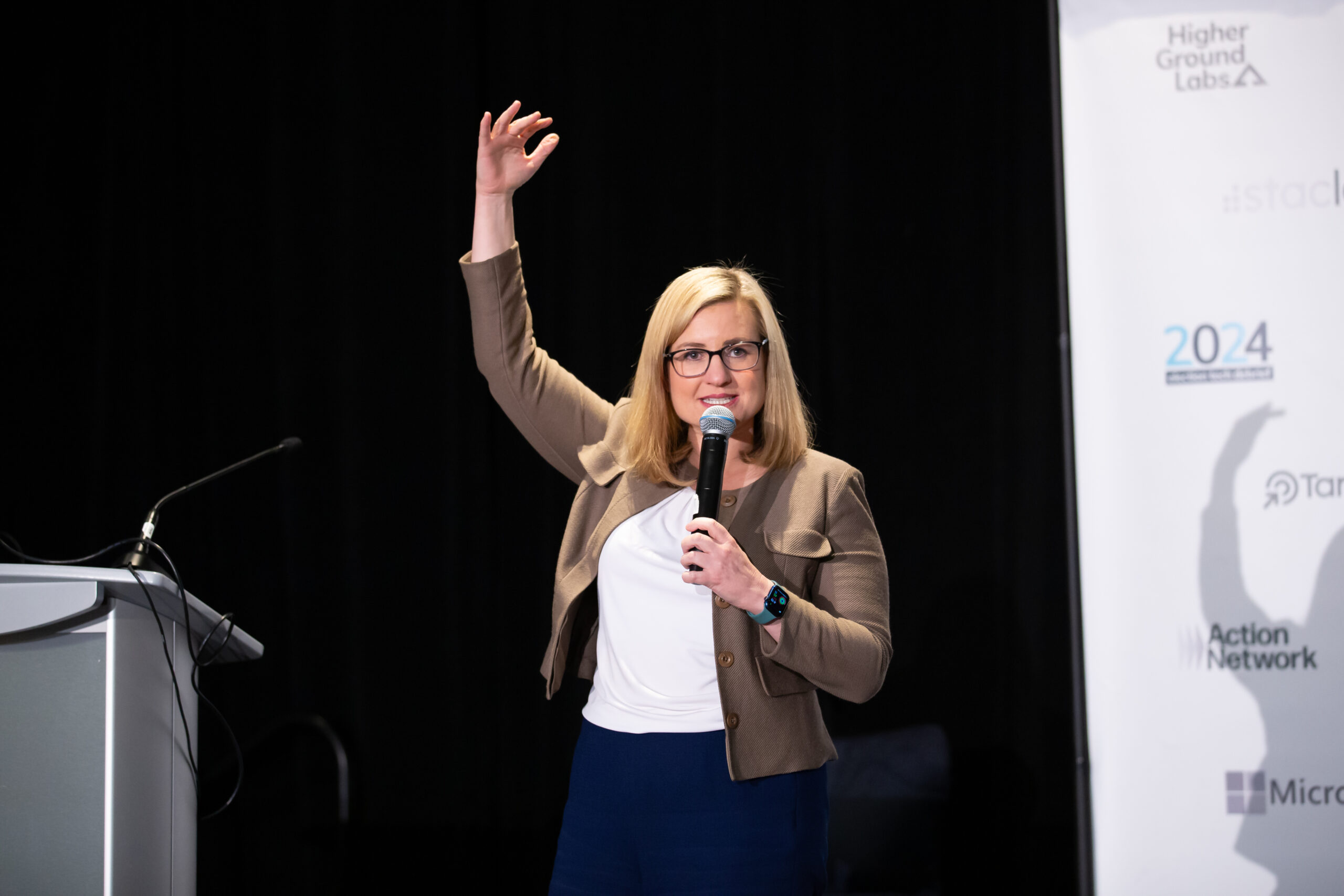 Mayor of Phoenix, Kate Gallago
Mayor of Phoenix, Kate Gallago
Speakers represented a diverse coalition of experts from 43 leading organizations across the political tech ecosystem, including senior strategists from the Harris campaign, Arizona state and city officials, and key leaders from the DNC. All seven DNC chair candidates, including the newly elected Ken Martin, also came together to share their visions for the Democratic Party’s next era of political technology and digital engagement, drawing an audience of over 1,000 viewers, including both in-person attendees and livestream participants.
Where We Go From Here
Throughout the Debrief, one theme emerged again and again: progressive technology is more advanced than ever—but we’re still playing catch-up in how we deploy it.
We’ve made major strides since 2016—our tools are more sophisticated, our data more complete, our platforms more user-friendly. But the way voters engage with information has fundamentally changed, and our tactics haven’t kept pace. We need to do more than improve our tools—we need to rethink how we use them.
The lessons we surfaced in Phoenix will inform the next wave of innovation, ensuring that campaigns, organizers, and digital strategists are better equipped to meet the challenges of 2026 and beyond. Insights from the Debrief will be featured in our upcoming Landscape Report, shape our 2025 investment thesis, and help ecosystem partners and portfolio companies build and evolve their strategies.
If one thing was clear from Phoenix, it’s this: we cannot afford to stand still. The road ahead requires experimentation, adaptation, and bold new approaches to how we use technology in campaigns. We look forward to continuing these conversations—and more importantly, putting these insights into action.
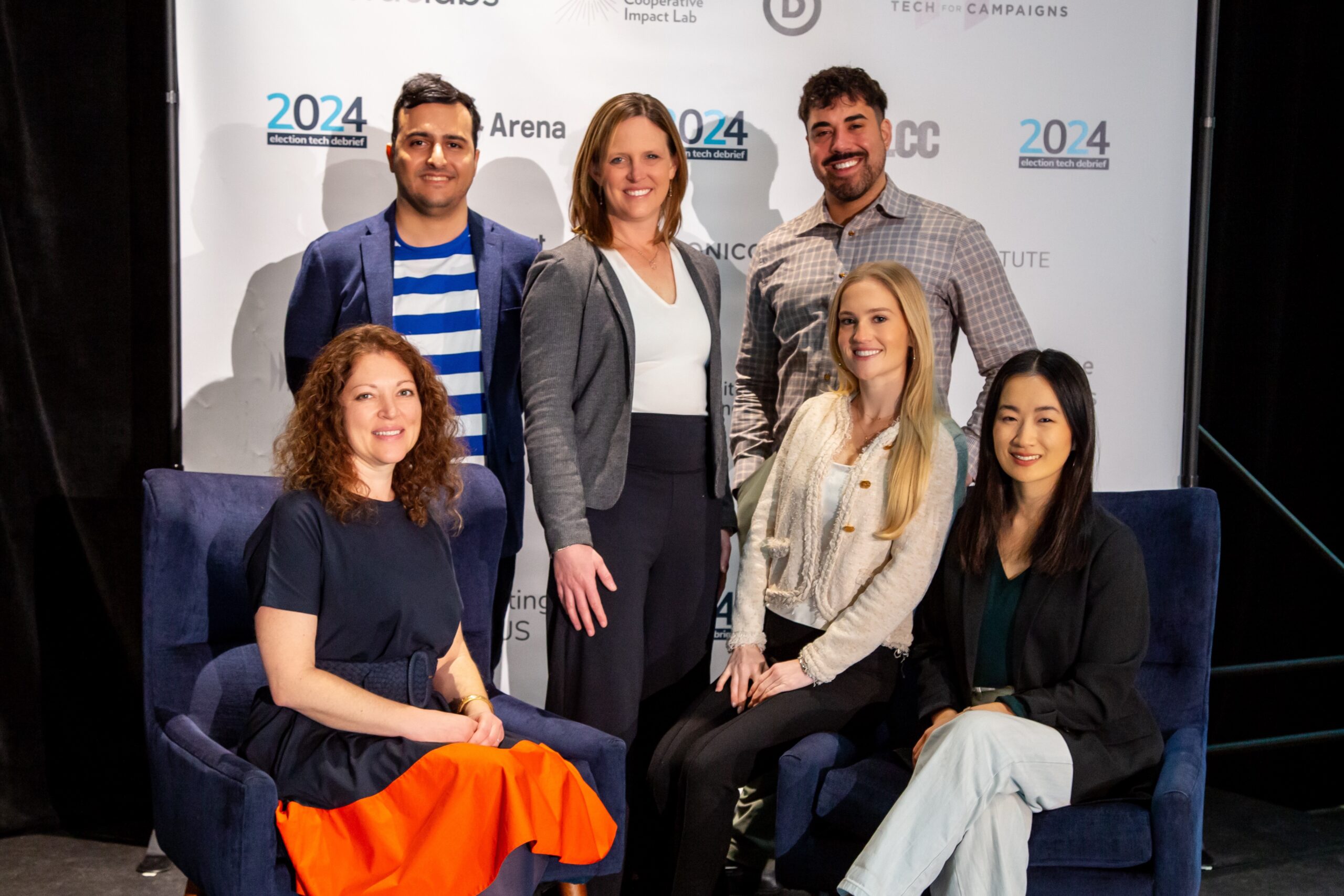 The Higher Ground Labs Team: Ali Talib, Betsy Hoover, Jose Cornejo, Leah Bae, Olivia Ellis, Tova Vance.
The Higher Ground Labs Team: Ali Talib, Betsy Hoover, Jose Cornejo, Leah Bae, Olivia Ellis, Tova Vance.
The 2024 Election Tech Debrief was hosted by Higher Ground Labs, Zinc Labs, The Movement Cooperative, Cooperative Impact Lab, Tech For Campaigns, stac labs, Trestle Collaborative, Democratic National Committee, Arena, Community Tech Alliance, Arizona Democratic Legislative Campaign Committee, Investing In US, OneOne Ventures, SEIU, Analyst Institute, Arizona Democratic Party, Iconico, and Blueline with thanks to Action Network, COURIER, PDI, Microsoft, Bully Pulpit International, and TargetSmart.
